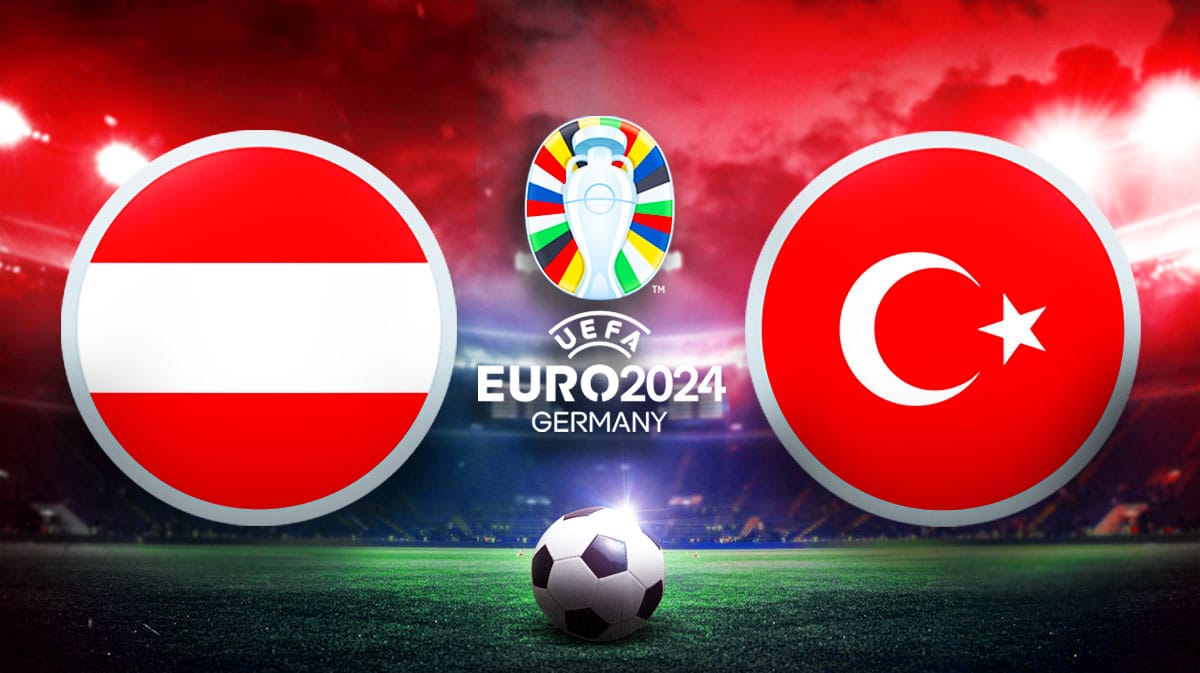History and Culture: Turkey Vs Austria
Turkey vs austria – Turkey and Austria have a long and complex history, marked by both cooperation and conflict. The two countries first came into contact in the 16th century, when the Ottoman Empire conquered much of Central Europe. Austria was one of the few European powers that was able to resist the Ottoman advance, and the two countries fought a series of wars over the control of the Balkans.
In the 19th century, Turkey and Austria became allies against Russia. However, the alliance collapsed in 1914, when Austria-Hungary declared war on Serbia, which triggered the outbreak of World War I. Turkey sided with Germany and Austria-Hungary in the war, but was defeated in 1918.
The match between Turkey and Austria was a tense affair, with both teams fighting for every inch of ground. The game was broadcast live on fox sports live , and fans around the world were able to witness the drama unfold.
In the end, Turkey emerged victorious, but Austria put up a valiant fight.
After the war, Turkey and Austria established diplomatic relations. However, relations between the two countries remained strained until the 1950s, when Turkey joined NATO. Since then, relations have improved, and Turkey and Austria are now close allies.
Cultural Similarities and Differences
Turkey and Austria are both culturally diverse countries. However, there are also a number of similarities between the two countries. Both countries have a strong tradition of music and dance, and both countries are home to a number of UNESCO World Heritage Sites.
One of the most striking similarities between Turkey and Austria is their love of food. Both countries have a rich culinary tradition, and both countries are known for their delicious desserts.
There are also a number of differences between Turkey and Austria. One of the most obvious differences is the role of religion. Turkey is a predominantly Muslim country, while Austria is a predominantly Christian country. This difference in religion has had a significant impact on the culture of the two countries.
Another difference between Turkey and Austria is the role of women. In Turkey, women have traditionally played a more subordinate role in society than in Austria. However, this is changing, and women are now playing a more active role in Turkish society.
Influence of Religion and Ethnicity
Religion and ethnicity have played a significant role in the relationship between Turkey and Austria. The Ottoman Empire was a Muslim empire, and this had a significant impact on the culture of the Balkans. Austria, on the other hand, was a Christian country, and this had a significant impact on the culture of Central Europe.
The difference in religion between Turkey and Austria has led to a number of conflicts over the centuries. However, in recent years, there has been a growing movement towards religious tolerance in both countries.
In the annals of football, Turkey’s rivalry with Austria is etched in legend. Yet, beyond the confines of Europe, another fierce rivalry unfolds in South America: Uruguay vs Bolivia. Click here to witness the clash of these two nations, where passion and skill collide on the field.
As the ball soars through the air, the fate of two nations hangs in the balance, mirroring the intense battles that have shaped the history of Turkey and Austria.
Ethnicity has also played a role in the relationship between Turkey and Austria. The Ottoman Empire was a multi-ethnic empire, and this had a significant impact on the culture of the Balkans. Austria, on the other hand, was a more ethnically homogeneous country.
The difference in ethnicity between Turkey and Austria has led to a number of conflicts over the centuries. However, in recent years, there has been a growing movement towards ethnic tolerance in both countries.
Economic Relations

Turkey and Austria enjoy a robust economic relationship, characterized by strong trade and investment ties. Bilateral trade volume reached a record high of over $3 billion in 2022, with Turkey primarily exporting agricultural products, textiles, and machinery to Austria, while importing pharmaceuticals, machinery, and automotive parts.
Key Industries and Sectors
Key industries where cooperation exists include:
– Automotive: Turkish companies have established joint ventures with Austrian manufacturers, such as AVL and Magna Steyr.
– Energy: Austria supports Turkey’s renewable energy transition through investments in wind and solar power projects.
– Tourism: Austria is a popular tourist destination for Turkish travelers, and Turkish Airlines offers direct flights between Istanbul and Vienna.
Challenges and Opportunities
While economic ties are strong, there are challenges to further integration:
– Trade imbalances: Turkey has a trade deficit with Austria, which it aims to reduce through increased exports.
– Political factors: Geopolitical developments can impact trade and investment flows.
– Visa restrictions: Turkish citizens require visas to enter Austria, which can hinder business travel and tourism.
Despite these challenges, there are opportunities for growth:
– Investment potential: Austria is a major source of foreign direct investment for Turkey, particularly in sectors such as energy, infrastructure, and manufacturing.
– Technology transfer: Austria’s advanced technology can benefit Turkish industries through joint ventures and partnerships.
– Increased trade: Turkey and Austria can explore new areas of cooperation, such as e-commerce and services, to boost trade volume.
Diplomatic Relations

Turkey and Austria established diplomatic relations in 1924. The relationship between the two countries has been characterized by cooperation and mutual respect. Turkey is a member of the European Union (EU) and Austria is a member of the North Atlantic Treaty Organization (NATO). Both countries are also members of the Organization for Security and Co-operation in Europe (OSCE).
International Organizations
International organizations have played an important role in shaping the relationship between Turkey and Austria. The EU has provided a framework for cooperation between the two countries in areas such as trade, investment, and energy. NATO has provided a framework for cooperation in the area of security. The OSCE has provided a framework for cooperation in the area of human rights and democracy.
Current State of Cooperation, Turkey vs austria
The current state of cooperation between Turkey and Austria is strong. The two countries cooperate closely in a number of areas, including trade, investment, energy, and security. Turkey is Austria’s fifth-largest trading partner, and Austria is Turkey’s ninth-largest trading partner. The two countries are also cooperating closely in the area of energy. Turkey is a major supplier of natural gas to Austria.
Challenges
There are some challenges in the relationship between Turkey and Austria. One challenge is the issue of migration. Turkey is a major source of migrants to Austria. Austria has been critical of Turkey’s human rights record, and Turkey has been critical of Austria’s immigration policies.
Another challenge is the issue of energy. Turkey is a major supplier of natural gas to Austria, but the two countries have different views on the future of energy. Turkey wants to increase its exports of natural gas to Austria, but Austria wants to reduce its dependence on fossil fuels.